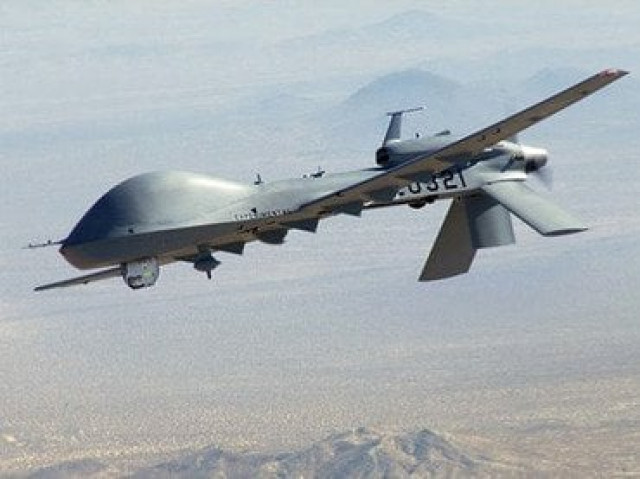Drone strike in South Waziristan kills eight
Two missiles strike house in the village of Babar Ghar, leaving six dead and two wounded.

A US spy drone. PHOTO: AFP/FILE
Two missiles struck a house in the village of Babar Ghar, a tribal district bordering Afghanistan which is a stronghold of Taliban and al Qaeda-linked militants.
On Wednesday, three militants, including a foreign fighter, were killed when an unmanned aerial vehicle (UAV) fired missiles on a militant compound in Ghulam Khan tehsil in North Waziristan.
Last month, US drones fired a volley of missiles at militant hideouts in Babar Ghar, killing at least 12 Taliban fighters, security officials said.













COMMENTS
Comments are moderated and generally will be posted if they are on-topic and not abusive.
For more information, please see our Comments FAQ